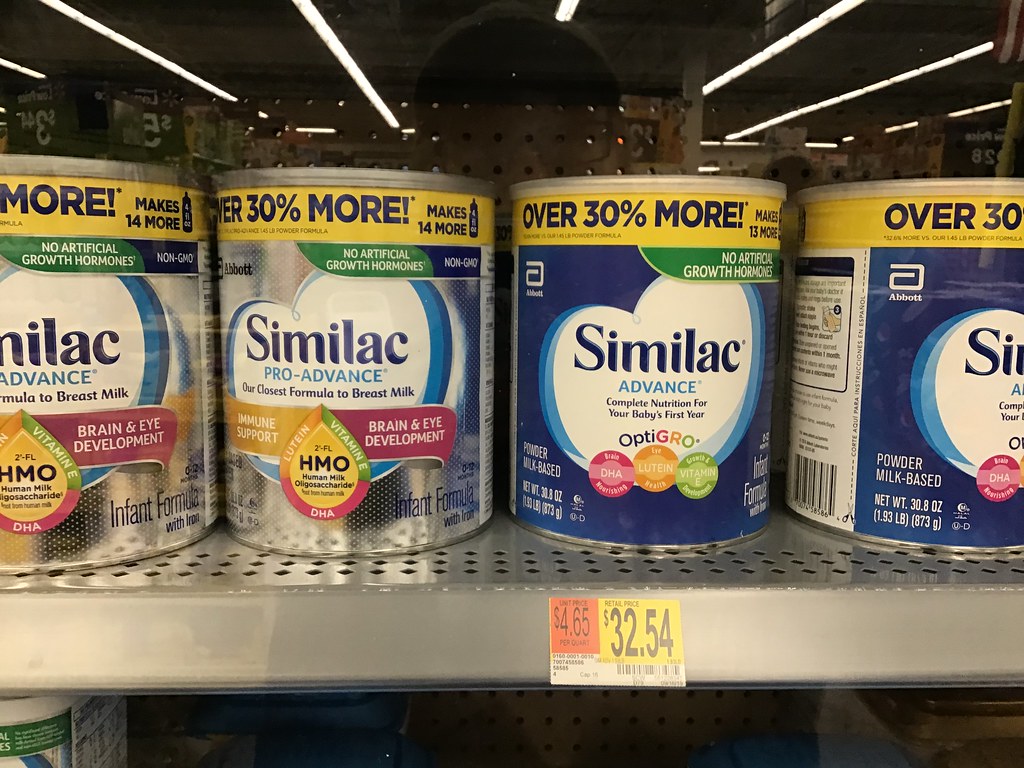Multinational medical device and health care company Abbott Laboratories is under investigation by the US Department of Justice (DOJ) following the closure of Michigan’s Abbott baby formula plant in February 2022. The criminal investigation looks into Abbott’s unsanitary workplace conditions which fuelled the nation’s worst baby formula shortage in decades.
According to an Abbott spokesperson via the Associated Press, “The Justice Department has informed Abbott of its investigation and the company is “cooperating fully.” The spokesperson, Scott Stoffel, declined to provide further information. So, how did one of the world’s leading baby formula producers get here?
From Closure to Criminal Investigation
The closure of the Abbott baby formula plant last year resulted in one of the worst shortages in recent history. Abbott, the maker of Similac and other popular baby formula brands, was forced to recall several powdered infant formulas and stop production after the US Food and Drug Administration (FDA) found evidence of unsanitary conditions.
Related: Baby Food Safety Act of 2021: Why Didn’t FDA Regulate Heavy Metals Sooner?
Health officials found bacteria at the plant that can potentially cause deadly infections in babies. The Abbott baby formula plant was reportedly contaminated with Cronobacter sakazakii, a germ that can be found in dry foods and cause blood infections and meningitis in infants. The FDA reported that two infants were hospitalized and later died after they contracted a bacterial illness from the germ after consuming the formula, saying the illness “may have contributed to the infants’ death.”
In April 2022, Abbott submitted a corrective action plan to the FDA and shortly after agreed to take several actions to remedy the problem including hiring an independent expert to review its operations. The plant reopened in June, but had to shut down again for several weeks because of flooding from storms. It then resumed production in July.
The FDA investigated reports that as many as nine children had died after consuming formula from Abbott’s plant, although it could not definitively link the plant to the deaths. Abbott denied its formula contained the bacteria following the results of routine testing it conducts before the formula is distributed, saying in a statement that its focus “has, is and always will be to ensure safe food for families.”
By May, major retailers, including CVS, Target and Walgreens, limited customer purchases of baby formula as the nationwide shortage intensified and was made worse by COVID-19-related supply chain issues. In August, Abbott announced it would restart production of Similac at its Michigan plant and produce 8 million pounds of formula that month.
Will Abbott Ever Recover?
According to a 2011 USDA report, Abbott Laboratories made up 43 percent of baby formula market sales, followed by Mead Johnson, which made up another 40 percent and Nestlé which made up 15 percent. However, Abbott’s shares have fallen nearly seven percent since the recall was issued, when shares were around $120.
Abbott relies on the success of its wide range of consumer and professional products, from nutrition and diabetes care to diagnostics and medicines. So while the outcome of the DOJ investigation remains to be seen, it is unlikely that Abbott’s overall earnings will suffer in the long-term.
When it comes to the trustworthiness of Abbott’s baby formula, some blame the FDA for its inability to oversee the country’s food supply chain. An independent review conducted by the Reagan-Udall Foundation found that the FDA “lacks the resources and authority to do what is expected to do — ensure the safety and availability of food on the market.”
The investigation into the Abbott baby formula plant comes as the FDA announced a draft guidance for action levels for lead in processed foods. The guidance is part of the agency’s Closer to Zero initiative, which sets forth the FDA’s approach to continually reduce exposure to heavy metals in foods eaten by babies and young children.












Join or login to leave a comment
JOIN LOGIN